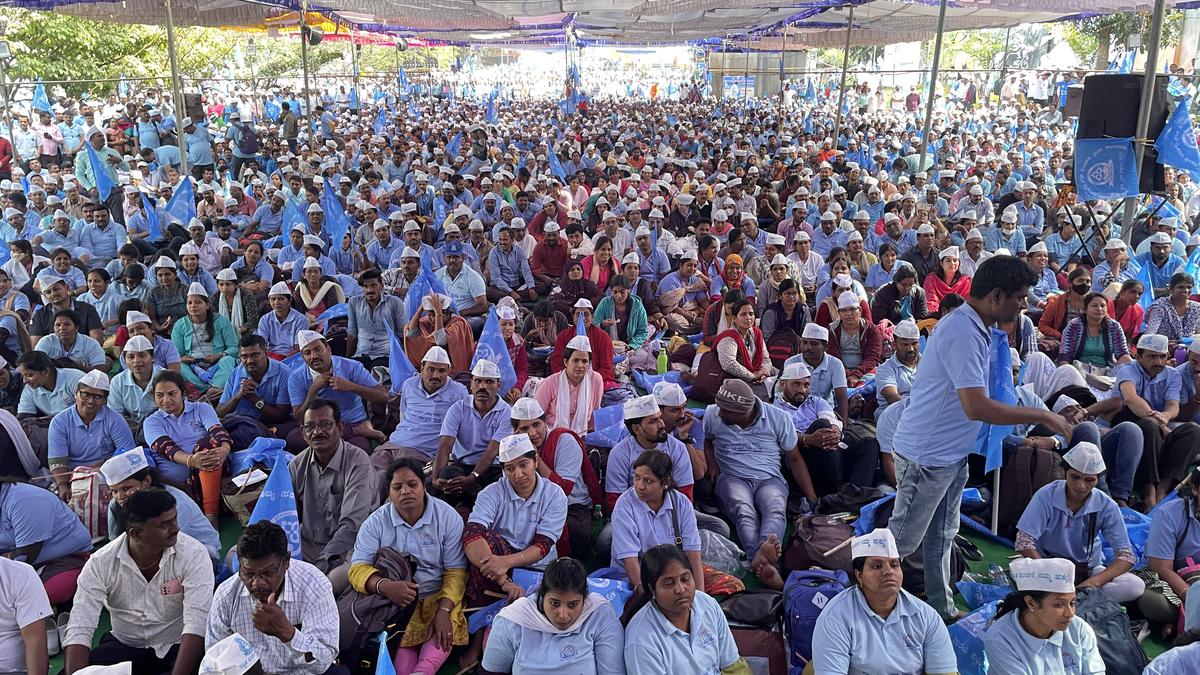
Employees seeking higher pay corner Karnataka government before model code of conduct kicks in
The Hindu
While the employees’ associations were expecting implementation of the pay commission’s recommendations in 2023-2024, silence over the issue in the budget is believed to have forced their hand
Implementation of the 7th Pay Commission recommendations, which is being demanded by the striking government employees in Karnataka, is expected to cause an additional burden of about ₹20,000 crore annually on the exchequer.
On February 28, Chief Minister Basavaraj Bommai said that the ramifications of implementing the 7 th Pay Commission recommendation, or its interim report, has to be studied, but sources in the government said that the 40% fitment and other demands will put an the additional burden of over ₹11,000 crore towards salaries and pension.
“Considering that there are about 3 lakh employees in various universities, aided institutions and other allied government services, the cost to the exchequer could be close to ₹20,000 crore annually,” according to a source.
In 2022-23, the expenditure on salary is estimated to be about ₹41,288 crore and on pension ₹24,016 crore. Salaries constitute about 21.7% of the State’s total revenues, and pension accounts for 12%. This is besides the grants in aid to meet salary and pension expenditure in aided educational institutions, local bodies and non-teaching staff in universities. State government employees constitute about 5.11 lakh in number, and an estimated 3 lakh in other services.
In an election year, under pressure from its employees, the State government set up the 7th Pay Commission under the chairmanship of former Chief Secretary Sudhakar Rao on November 19, 2022. The commission released a set of questionnaires on January 17, 2023. The pay commission has been asked to consider revision of pay scales of State government employees, employees of aided educational institutions and local bodies, and non-teaching staff of universities. It has been specifically asked to examine the feasibility of adopting the Central pay structure.
The previous revision of pay for employees came in July 2017, on the basis of the 6th Pay Commission recommendations, which were implemented in 2018 with monetary benefits effective from April 1, 2018.
The sense of urgency shown by the State government employees in organising an indefinite strike is closely linked to Assembly elections that are round the corner.













